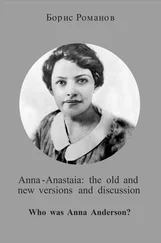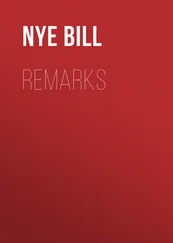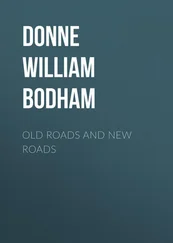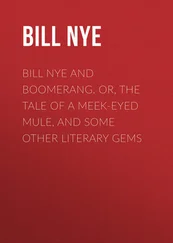Bill Nye - Bill Nye's Chestnuts Old and New
Здесь есть возможность читать онлайн «Bill Nye - Bill Nye's Chestnuts Old and New» — ознакомительный отрывок электронной книги совершенно бесплатно, а после прочтения отрывка купить полную версию. В некоторых случаях можно слушать аудио, скачать через торрент в формате fb2 и присутствует краткое содержание. Издательство: Иностранный паблик, Жанр: foreign_prose, на английском языке. Описание произведения, (предисловие) а так же отзывы посетителей доступны на портале библиотеки ЛибКат.
- Название:Bill Nye's Chestnuts Old and New
- Автор:
- Издательство:Иностранный паблик
- Жанр:
- Год:неизвестен
- ISBN:нет данных
- Рейтинг книги:3 / 5. Голосов: 1
-
Избранное:Добавить в избранное
- Отзывы:
-
Ваша оценка:
- 60
- 1
- 2
- 3
- 4
- 5
Bill Nye's Chestnuts Old and New: краткое содержание, описание и аннотация
Предлагаем к чтению аннотацию, описание, краткое содержание или предисловие (зависит от того, что написал сам автор книги «Bill Nye's Chestnuts Old and New»). Если вы не нашли необходимую информацию о книге — напишите в комментариях, мы постараемся отыскать её.
Bill Nye's Chestnuts Old and New — читать онлайн ознакомительный отрывок
Ниже представлен текст книги, разбитый по страницам. Система сохранения места последней прочитанной страницы, позволяет с удобством читать онлайн бесплатно книгу «Bill Nye's Chestnuts Old and New», без необходимости каждый раз заново искать на чём Вы остановились. Поставьте закладку, и сможете в любой момент перейти на страницу, на которой закончили чтение.
Интервал:
Закладка:
Bill Nye
Bill Nye's Chestnuts Old and New
CHESTNUT-BURR. I. – THE SHAKESPEARE-BACON PUZZLE WRESTLED WITH CONSCIENTIOUSLY
Why Bill favors the Claims of Bill Shakespeare – His Handwriting skillfully touched upon – Its Likeness to Horace Greeley's – Difference between Shakespeare and Bacon – A kind Lift for the Yeomanry.
Trusting that it will not in any way impair the sale of Mr. Donnelly's book, I desire to offer here a few words in favor of the theory that William Shakespeare wrote his own works and thought his own thinks. The time has fully arrived when we humorists ought to stand by each other.
I do not undertake to stand up for the personal character of Shakespeare, but I say that he wrote good pieces, and I don't care who knows it. It is doubtless true that at the age of eighteen he married a woman eight years his senior, and that children began to cluster about their hearthstone in a way that would have made a man in a New York flat commit suicide. Three little children within fourteen months, including twins, came to the humble home of the great Bard, and he began to go out and climb upon the haymow to do his writing. Sometimes he would stay away from home for two or three weeks at a time, fearing that when he entered the house some one would tell him that he was again a parent.
Yet William Shakespeare knew all the time that he was a great man, and that some day he would write pieces to speak. He left Stratford at the age of twenty-one and went to London, where he attracted very little attention, for he belonged to the Yeomanry, being a kind of dramatic Horace Greeley, both in the matter of clothes and penmanship. Thus it would seem that while Sir Francis Bacon was attending a business college and getting himself familiar with the whole-arm movement, so as to be able to write a free, cryptogamous hand, poor W. Shakespeare was slowly thinking the hair off his head, while ever and anon he would bring out his writing materials and his bright ready tongue, and write a sonnet on an empty stomach.
Prior to leaving Stratford he is said to have dabbled in the poaching business in a humble way on the estates of Sir Thomas Lucy, since deceased, and that he wrote the following encomium or odelet in a free, running hand, and pinned it on the knight's gate:
O, deer Thomas Lucy,
Your venison's juicy,
Juicy is your venison;
Hence I append my benison.
The rose is red; the violet's blue;
The keeper is a chump and so are you,
Which is why I remark and my language is plain,
Yours truly,
High Low Jack
And the Game.
Let me now once more refer to the matter of the signature. Much has been said of Mr. Shakespeare's coarse, irregular and vulgar penmanship, which, it is claimed, shows the ignorance of its owner, and hence his inability to write the immortal plays. Let us compare the signature of Shakespeare with that of Mr. Greeley, and we notice a wonderful similarity. There is the same weird effort in both cases to out-cryptogam Old Cryptogamous himself, and enshrine immortal thought and heaven-born genius in a burglar-proof panoply of worm fences, and a chirography that reminds the careful student of the general direction taken in returning to Round Knob, N. C., by a correspondent who visited the home of a moonshiner, with a view toward ascertaining the general tendency of homebrewed whisky to fly to the head.
If we judge Shakespeare by his signature, not one of us will be safe. Death will wipe out our fame with a wet sponge. John Hancock in one hundred years from now will be regarded as the author of the Declaration of Independence, and Compendium Gaskell as the author of the Hew York Tribune .
I have every reason to believe that while William Shakespeare was going about the streets of London, poor but brainy, erratic but smart, baldheaded but filled with a nameless yearning to write a play with real water and a topical song in it, Francis Bacon was practicing on his signature, getting used to the full-arm movement, spoiling sheet after sheet of paper, trying to make a violet swan on a red woven wire mattress of shaded loops without taking his pen off the paper, and running the rebus column of a business college paper.
Poets are born, not made, and many of them are born with odd and even disagreeable characteristics. Some men are born poets, while it is true that some acquire poetry while others have poetry thrust upon them. Poetry is like the faculty, if I may so denominate it, of being able to voluntarily move the ears. It is a gift. It cannot be taught to others.
So Shakespeare, with all his poor penmanship, with his proneness to poach, with his poverty and his neglect of his wife and his children, could write a play wherein the leading man and the man who played the bass drum in the orchestra did not claim to have made the principal part.
Shakespeare did not want his plays published. He wanted to keep them out of the press in order to prevent their use at spelling schools in the hands of unskilled artists, and so there was a long period of time during which the papers could not get hold of them for publication.
During this time Francis Bacon was in public life. He and Shakespeare had nothing in common. Both were great men, but Bacon's sphere was different from Shakespeare's, While Bacon was in the Senate, living high and courting investigation, Shakespeare had to stuff three large pillows into his pantaloons and play Falstaff at a one-night stand.
Is it likely that Bacon, breathing the perfumed air of the capitol and chucking the treasury girls under the chin ever and anon, hungered for the false joys of the under-paid and underscored dramatist? Scarcely!
That is one reason win I prefer to take the side of Shakespeare rather than the side of Bacon.
Mr. Donnelly's book shows keen research, and preserves the interest all the way through, for the reader is impressed all along with the idea that there is a hen on, if I may be permitted to coin a phrase; but so far my sympathies and kind regards go with Shakespeare. He was one of the Yeoman of Stratford, and his early record was against him; but where do poets usually come from? Do they first breathe in the immortal sentiments which, in after years, enable their names to defy the front teeth of oblivion while stopping at one of our leading hotels? Did Burns soak his system with the flavor and the fragrance of the Scotch heather while riding on an elevated train? Did any poet ever succeed in getting up close to Nature's great North American heart by studying her habits at a twenty-five dollar german? I trow not. Moreover, every one who studies the history of our great poets and orators will trow likewise. Lord Tennyson wrote better things before he tried to divide his attention between writing poetry and being a Lord. So I say that from our yeomanry frequently spring the boys whose rare old rural memories float in upon and chasten and refine their after-lives even when fame comes, and fills them full of themselves and swells their aching heads as they swoop gayly across the country in a special ear.
I do not go so far as some of the friends of Shakespeare, and say that while he was a lovely character and a great actor, that Bacon was a ham. I do not say that, for Bacon had his good points.
The thing that has done more to injure Shakespeare in the eyes of the historian than aught else, perhaps, was his seeming neglect of his wife. But we should consider both sides of the question before we pass judgment. The Hathaways were queer people, and Anne was unusually so. Her father snubbed her in his will just as her husband did, which shows that Mrs. Shakespeare was not highly esteemed even by her parents. The brief notice which Anne received in these two wills means a good deal, for there is nothing quite so thoroughly unanswerable as a probate snub.
Читать дальшеИнтервал:
Закладка:
Похожие книги на «Bill Nye's Chestnuts Old and New»
Представляем Вашему вниманию похожие книги на «Bill Nye's Chestnuts Old and New» списком для выбора. Мы отобрали схожую по названию и смыслу литературу в надежде предоставить читателям больше вариантов отыскать новые, интересные, ещё непрочитанные произведения.
Обсуждение, отзывы о книге «Bill Nye's Chestnuts Old and New» и просто собственные мнения читателей. Оставьте ваши комментарии, напишите, что Вы думаете о произведении, его смысле или главных героях. Укажите что конкретно понравилось, а что нет, и почему Вы так считаете.












